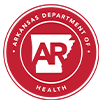Despite widespread support for organ donation, a severe shortage in the number of organs donated exists. More than 118,000 Americans are on a waiting list for a kidney, heart, liver or other vital organ, and another person is added to that list every 16 minutes. Statistics reveal an average of 18 individuals will die each day while waiting for an available organ. Estimates indicate that more than 25,000 Americans die each year under circumstances that would allow them to become organ donors, but an average of only about 5,000 a year actually donate.
However, knowing this shortage, ARORA uses SHARE (Arkansas’ Statewide Health Information Exchange) to access patient’s information in real time from hospitals and clinics across the State of Arkansas. This allows real-time decisions on if a patient is eligible for organ donation based on their diagnosis, laboratory results, progress notes as well as many other factors. Before having access to SHARE, Paul Coulter, Donation Development Liaison stated “ARORA staff had to drive to hospitals and review the patient’s medical chart before we could deem the patient a candidate for organ donation. This would take many hours,” he said.
During this summer Paul stated “SHARE simply helped restore the life of someone on the waiting list by allowing our providers to have real-time access to a medical history to determine if donation was possible. We had a family who mentioned their loved one had a cancer diagnosis, but didn’t know all the details. We researched the patient’s medical records and didn’t find the cancer diagnosis. We then checked SHARE where we found the complete story regarding the cancer, which resulted in the patient becoming a tissue donor. Because of SHARE’s ability to display multiple hospitals’ visits, we were easily able to find the information needed. Without SHARE, this patient would not have been able to enhance the lives of others due to the lack of information. Donation provides hope and healing for donor families as they know their loved ones helped others in a time of great need.
Paul stated that “Research indicates the primary reason for not donating is lack of education about the subject. A single, multi-organ donor can provide as many as seven organs—heart, liver, two kidneys, two lungs pancreas, and intestine for transplantation—as well as tissue, including corneas, heart valves, skin and bone. Less than one per cent of all deaths are potential organ donors, which also greatly limits the number of organs available for transplant.”
As part of the United Network for Organ Sharing (UNOS), ARORA is certified by the Centers for Medicare and Medicaid Services (CMS). There are three organ transplant centers in Arkansas: Arkansas Children's Hospital, Baptist Health Medical Center and UAMS, all located in Little Rock. Arkansas Children’s Hospital performs heart and kidney transplants; Baptist Medical Center performs heart transplants; and UAMS performs kidney and liver transplants. Surgical centers throughout the state perform tissue transplants, including bone, skin, and cornea grafts.
Since 1988, more than 336,000 kidney transplants have been performed annually across the United States with a success rate of 95 percent. In 2012 there were more than 28,000 organ transplants and more than 450,000 tissue transplants. Each transplant procedure, over the past several years, has shown an increase in not only the number of cases performed each year, but in the success rate as well.
Simply put, having access to SHARE has saved our agency time and resources while making every effort to provide organs and tissues for life-saving and life-enhancing transplantations.
About Arkansas Regional Organ Recovery Agency (ARORA)
The Arkansas Regional Organ Recovery Agency (ARORA) was established in 1987 as a non-profit, independent organ procurement agency. ARORA is headquartered in Little Rock, with a satellite office in northwest Arkansas located in Fayetteville. Serving 64 counties in the state, ARORA is managed by an executive director who reports to a board of directors. ARORA is also served by an Advisory Council, consisting of transplant surgeons, related physicians, donor family members, transplant recipients, hospital administrators and public representatives.
ARORA’s mission is to restore lives through the recovery of organs and tissues for transplant.





